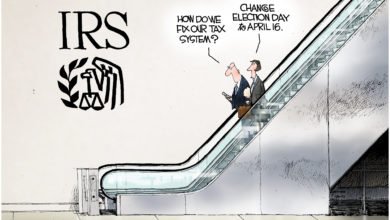The UK’s Single-Payer Healthcare System Has Become a State Religion—and It’s Failing
The NHS (National Health Service) is known to be the closest thing to a state religion in the UK. During the peak of the Covid-19 pandemic, households around the country clapped outside their front doors in order to thank the NHS for its service.
The British healthcare system is “our” NHS and is claimed to be one of the best things about the UK. However, in reality the collectivism which nationalized healthcare promotes denies individuals their autonomy and places their healthcare in the hands of the heavily bureaucratic and inefficient state monopoly.
Due to the almost theocratic attitude that the British public has of the NHS, criticism is highly frowned upon and NHS failures are often excused. One of the biggest excuses of NHS failure is the claim that it is underfunded. For one, this is not true as NHS spending has continued to increase, especially throughout the Covid-19 pandemic. However, this accusation leads to a bigger question for the collectivists: considering a general election is bound to happen every five years in the UK, why are you potentially putting healthcare in the hands of a party you believe will underfund it?
The political process is subject to mood swings and political parties have different focuses. Individuals are forced to pay however much the current government dictates. This means that during economic turmoil, a healthy household which is struggling to put food on the table will still have to pay national insurance, despite rarely using it. Individuals should have control over what is prioritized financially in their household. There’s no point having expensive subscriptions to services you don’t use when you need other services more. Under a free market system, if an individual’s financial situation is tough they would be able to choose cheaper healthcare insurance.
In addition, under a single-payer healthcare system, patients get what they’re given and do not have much choice over it.
For example, in the UK during the Covid pandemic, 25,000 patients were discharged from the hospital to care homes without testing or isolation arrangements. This contributed significantly to 20,000 people in care homes dying after testing positive between March and June 2020. It’s clear that care home patients were an afterthought when it came to the NHS’s Covid response. They were not treated as consumers which a business would attempt to appeal and cater to. Instead, the country’s elderly were treated as pawns in the NHS’s strategy to deal with the pandemic.
Furthermore, those who want better quality healthcare don’t have much choice unless they want to go private. If an elderly person wants better healthcare, they don’t have much control other than getting what the state decides they should receive. Under a free market system, they would be able to have more choice over their healthcare. However, even if the state does decide to spend more on healthcare, national insurance increases probably won’t specifically target the needs of the patient since national insurance is standardised to the taxpayer.
If an individual does want to pay for private healthcare, they still have to pay for national insurance on top of that. This means that private healthcare isn’t realistically accessible to working-class people, making them dependent on state healthcare which is extremely inefficient and uncomfortable for many in the UK. The NHS is not a safety net, but a trap for working-class Britons which they cannot escape if they find the quality of care inadequate.
With increases in waiting times, both for A&E and GP appointments, it seems that having a healthcare system that is “free to the point of use” is pointless if those who need it can’t use it due to being on endless waiting lists. Single-payer healthcare sacrifices choice for “free” healthcare. Instead, the UK should focus on affordable healthcare through the free market. This would provide patients with genuine choice, making the healthcare system more comfortable, accessible and efficient.
Content syndicated from Fee.org (FEE) under Creative Commons license.
Agree/Disagree with the author(s)? Let them know in the comments below and be heard by 10’s of thousands of CDN readers each day!




